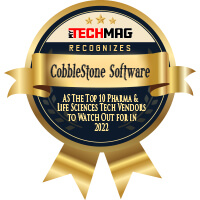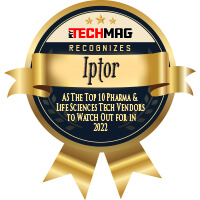2020 was the year when the pandemic put the medical device manufacturing businesses to test. Due to the covid-19 crises, more than ever devices were needed to accommodate the requirements of so many patients across the world. This crisis highlighted the need for advancing medical device manufacturing with the latest innovations in technology.
Challenges faced by the Medical Device Manufacturing Industry
Several challenges are specific to medical device manufacturing. (Also read: Challenges and Opportunities in Today’s Medical Device Manufacturing Industry)
- Since so many lives depend on medical devices, the manufacturing companies have to meet the highest standards of any industry.
- There are requirements for extensive documentation.
- There is a huge gap between product development and production.
- The pressure to control prices from the government and growing competition in the market.
- The manufacturing process must be error-free and profitable at the same time.
To overcome these challenges that impede productivity and efficiency, the medical device manufacturers have been investing more and more in next-gen advanced manufacturing technologies.
The Industry 4.0 Revolution
From the manufacturing process to data collection and analysis, medical device manufacturing is being automated at each step to ensure high precision and quality. This has been made possible by ‘The Factory of The Future’ or Industry 4.0 (I4.0) that combines automation and IT. It provides an intelligent, highly agile, and flexible production environment that helps maximize the efficiency and performance of every production unit.
Industry 4.0 combines different manufacturing, automation, and data exchange technologies that are changing the landscape of how medical devices are manufactured today and in the future. Using the Internet of Things (IoT), Internet of Services (IoS), and sensors connected to machine components, real-time intelligence is provided to factories, allowing them to produce high-quality devices.
The implementation of IoT in healthcare, along with machine learning and automation technologies, has the following advantages.
- Increased productivity
- Timely identification of inefficiencies
- Consistency in the quality of medical devices
- Reduction in wastage
Advantages of I4.0
The potential benefits of Industry 4.0 can be enormous if the technology is used in an organized and intelligent manner. Here are some of the benefits that the manufacturers can expect.
- Increased competitiveness
- Accelerated innovation in medical devices
- Easy customization of individual orders
- Faster response to customer demands
- In the times when medical device manufacturers are supplying to many countries, meeting the demands while maintaining quality and keeping the cost low can be difficult. I4.0 technology can provide an effective solution to such manufacturers.
These benefits can only be achieved if the manufacturers make the following assessments before the implementation of I4.0.
- The existing level of automation. The manufacturers need to assess the existing level of automation of their production processes and whether it has been implemented in the right place.
- Assessing the state of older manufacturing systems and devising upgrade strategies. Many manufacturing units have a mix of older manufacturing systems with little to no intelligent controls to advanced, fully equipped pieces of machinery. Assessing older systems’ status and developing step-by-step strategies to upgrade them is important to get all the benefits of I4.0.
- Lean manufacturing and minimization of waste: The main objective of lean manufacturing is to reduce waste, costs while maximizing productivity and improvement of products. I4.0 technology can only be effectively implemented if lean manufacturing practices are adopted, and wastage is minimized.
Integration of Manufacturing Execution Systems
The manufacturing Execution System, which is based on decentralized logic, enables the medical device manufacturers to achieve highly efficient and compliant medical device manufacturing processes that lead to the production of medical devices of the highest quality. Some additional advantages of MES implementation include:
- Less paperwork
- Less time to release the final product
- Less wastage
- Fewer complaints related to the product.
Conclusion
With the medical device market expected to grow at a CAGR of 6.1% from 2021 to 2023, there are bound to be many manufacturing challenges. Therefore, medical device manufacturing businesses will need to up their technology game to ensure consistent supply with reliability, precision, and safety.







